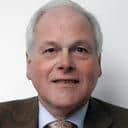James Dingley: Unionists need to learn to think and produce positivity if they want to save the Union


Inevitably, unionists come across as the negative, preventing things happening, not moving on and preventing others from doing so.
You would have thought, since the DUP supported Brexit (and former prime minister Boris Johnson), that they would have thought all the problems through beforehand, prepared for them with a master plan to guide us – but, no.
One might say, typical unionists (many do).


Advertisement
Hide AdAdvertisement
Hide AdUnionism seems to have failed to grasp the importance of always being positive in politics – you must be the yes candidate (not: Ulster says no!), the go-ahead ones offering a bright shiny, future and change for the better.
No one would place unionists in that category.
Voters want a constructive, positive message, not found amongst unionists.
It’s always the case of unionists being dragged along, begrudgingly like a naughty child and being made to do things, holding out, not moving on.
Unionists need to ask themselves why (but I doubt if many do).
Advertisement
Hide AdAdvertisement
Hide AdConsequently, they are losing big opportunities, note the rise of the Alliance vote.
They also need to note the disillusionment amongst nationalists with so much of what has happened within their communities, especially in relation to the Catholic church.
There is a big opportunity opening up for a non-religiously defined politics, particularly given the decline in Protestant church attendance.
But, to capture this, unionists need to discover the importance of being positive, of having progressive policies they put on the table and make other people respond and react negatively to.
Advertisement
Hide AdAdvertisement
Hide AdMost important is to develop ideas of how we create a genuinely inclusive society that rises above our almost unthinking political tribalism, offers a serious alternative to the current status quo (where unionism is a minority).
Bold ideas that challenge our current status quo, are genuinely positive, progressive and offer a brighter alternative future, building on the strengths of the Union, which many nationalists acknowledge.
Analysis, policies and ideas that are game-changing will impress the electorate here, especially outside of the normal affiliations, and policy makers who really count, in London, Brussels and Washington (get real).
But to do this unionists have to think. And that is the real problem, mostly they don’t, they just react negatively.
There seems to be no thinking mechanism within unionism.
Advertisement
Hide AdAdvertisement
Hide AdFrom 1970 onwards, they have offered no helpful analysis of our core problems, from which stems no ideas about how to solve them (London would love some real help), hence no serious alternative policies to guide politics and steer it in a positive direction.
Ideas, explanations, analysis always comes from the other side, but rarely stand up to much critical scrutiny.
But there is no serious unionist critique of them, let alone alternatives from unionists, apart from clinging on to what they have (negativity again).
Unionists need to learn to think, engage intellectually and produce positivity: their failure to do so is the biggest threat to the Union.
James Dingley is a former NATO instructor and university lecturer on terrorism